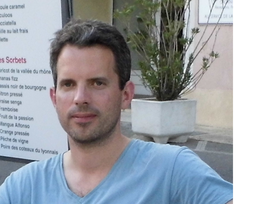Counting Cals vs Body's Natural Instinct
Replies
-
What natural instinct? Maybe some people have it but I don't. Without counting I sometimes undereat and more often overeat. Both sabotage weight loss for me (undereating leads me to overeat when I get too hungry). Also, I feel hungry when I eat certain high calorie foods (like sweets) cause they don't "fill me up" and then I overeat my calorie macro and don't lose weight. I'm sticking to what works for me -- eating to my macros, including my calorie macro. I'm really glad to be out of denial about all of this, and it is actually easier because rather than always wondering where I am at in terms of what I need to eat for weight loss, I actually know.0
-
There is no "one size fits all" when it comes to eating and/or dieting. I don't count calories or log food here. I eat intuitively and have no issues with over eating. It took some time but I learned to listen to my body and know when I'm satisfied. "Full" is not even an option for me. That is uncomfortable and something I just cannot do.
To each their own. Everyone is different and needs to utilize whatever method works for them. I do think that if you are weighing and measuring food it's important to learn from it: learn proper portion sizes so that when you don't have a scale available you can fairly confidently estimate correct portion sizes. If you rely solely on a scale and calorie-counting methods and stress out about it when you can't do it, then that turns it into a negative thing.0 -
I do agree with this and see it all the time when my kids leave one bite of something on their plate. I would never dream of leaving one bite.0
-
Need2Exerc1se wrote: »Need2Exerc1se wrote: »If the "clean your plate" rule were to blame for people being obese, obesity would have been widespread ages ago.
How so? Not everyone is encouraged to clean their plate. I didn't grow up this way.
Personal experience aside, people have been telling children for ages to clean their plates, yet widespread obesity is a fairly recent thing.
Naturally that doesn't mean every single child is told this. I assumed it went without saying that I was speaking generally.
I understood it generally, but the statement doesn't really say anything to prove or disprove the OP's question. Of the people who are obese, how many of them were taught to "clean their plate"? I was looking for something else to go with it as a part of the conversation.0 -
Need2Exerc1se wrote: »Need2Exerc1se wrote: »If the "clean your plate" rule were to blame for people being obese, obesity would have been widespread ages ago.
How so? Not everyone is encouraged to clean their plate. I didn't grow up this way.
Personal experience aside, people have been telling children for ages to clean their plates, yet widespread obesity is a fairly recent thing.
Naturally that doesn't mean every single child is told this. I assumed it went without saying that I was speaking generally.
I understood it generally, but the statement doesn't really say anything to prove or disprove the OP's question. Of the people who are obese, how many of them were taught to "clean their plate"? I was looking for something else to go with it as a part of the conversation.
Well now I'm even more confused. You understood my statement but still asked "how so"??
How so is that telling children to "clean your plate" is not at all new yet rampant obesity is new. Not really sure what else you looking for but that was pretty much my whole point.0 -
darrensurrey wrote: »
Pretty much this.0 -
This content has been removed.
-
The irony is that the obesity epidemic has only increased even as, for the first time in human history, we have the ability to accurately count calories.0
-
I get it, I spent 2010 eating as much as I wanted as an experiment, I stabilized at 94kg - so my natural calorie counter 'wanted' me to be 15kgs overweight.
Now I'm maintaining around 78kg, and on 2000 calories a day I never feel stuffed, nor starving, so I stopped counting calories and just rely on those sensations.0 -
sheermomentum wrote: »A person who had this "natural satiety instinct" would not necessarily have been what you'd call "evolutionarily advantaged" over most of human history. We're very well-built to store energy for later. Maybe people who are inclined to stop eating after a few hundred calories are evolutionarily advantaged for the next few thousand years. That would make the whole obesity thing kinda self-solving in the long term

If this were the case, yes that might be true.
However, given that basically anyone can and does live to reproductive age in this society and that being overweight/obese doesn't really prevent passing on ones genes their isn't a way for evolution to select for/against such a trait.
Honestly, you can debate with modern society and medicine if we are evolving much at all.
0 -
Something I am currently experimenting with is leaving food ON my plate when I am done. I say out loud "I am stuffed, I am full, I cant eat another bite if I wanted too". Even though I still may want it. I am noticing that I am starting to feel that full feeling long before I am close to being done...0
-
Sweets1954 wrote: »I think that is basically true when you are an infant. Small children do not eat when they are not hungry unless you make them. It's as we age that the "clean plate club" comes into play and we lose our ability to tell when we are really hungry, or chose to ignore our bodies signals. If this wasn't true, there wouldn't be so many overweight people!.
I can't verify the source right now, I believe it was from the babyled weaning info I had but it said that children under the age of 2 will eat about the same amount of food regardless of how much is offered. After the age of 2 portion size begin to influence how much they eat.Blueseraphchaos wrote: »
I absolutely refused to put anything in my kids' bottles except for formula or milk. I always said If babies were ready to eat solid food, they could eat it from a spoon. With a sample size of 2 (lol) both my kids are at a great weight and stop eating when they are full. Who knows, they may have been this way even if i had put cereal in their bottles....but i look at all my friends who did that and all their kids are overweight, from the youngest, a 1 year old, to the oldest, to a 7 year old.
I did get a lot of nagging and forceful pressure to add stuff to my kids' bottles, though.
Another explanation or theory rather: It is not that the cereals messed up children's internal switches, but that parents who are likely to put cereals in baby bottles might also be the ones serving high calorie foods to their children? (add cheese to everything; top everything with butter; add sugar; fry, fry, fry etc.)
I'm not sure that would be correct though. The thinking behind it was that the child was waking up hungry so you are giving them something more substantial before bed. Not simply just trying to feed them.
And no, it isn't supposed to be recommended anymore but it is still advice that is given.0 -
Its really simple....... a calorie is a unit of energy (specifically the amount of energy required to raise the temperature of 1 kilogram of water by 1 degree Celsius).
If the energy out (the 'juice' your body needs to complete the task of staying alive, move around, think, digest ect ect) is great than the energy in (energy from food), then you can't have something for free. The difference has to come from somewhere and in the case of mammals, it comes from our fat stores.
In reverse, if the energy out is less than the energy in... Your body will store it for later use. It doesn't want to throw away all that energy. What a waste that would be. Your body doesn't know that you live on the 5th floor of a downtown apartment, only minutes from a grocery store. For all it knows, you're still a caveman who doesn't know when his next meal is coming. Therefore it will hold on to all the resources it can.
This is a very lose description but read up on 'the conservation energy'. The universe does not give something for nothing.
As an engineer, thinking about eating in terms of energy makes it easier to visualize nutrition and weight loss goals. Like it or not, if you're consuming too many calories then your body is gonna hold on to the excess.0 -
We absolutely do. But that doesn't mean we listen to it, or know how to. Calorie counting/MFP teaches you to teach yourself to listen to your body more and your brain less. Also things like hormones during teenage years have a HUGE affect on many things, there is a type of emotional connection to food as well that can be overwhelming for some, and for others not matter. Some people have a higher metabolism, while others have a slower one, this affects it greatly as well.
I'm going to be TMI here but totally upfront. Those with a higher metabolism that have bowel movements daily/several times a day usually are the ones who eat like bears but remain thin, I know many people like this. Those with a slower one may eat like a bear but stay overweight. The person with the high metabolism isn't conscience of their inner-switch, neither is the other person. But the first one has an advantage that the second does not and their weights are affected differently because of it.0 -
My "internal calorie counter" must be broken. Throughout most of my adult years, I regained the same 40 to 80 pounds over and over again when relying on my own instincts to tell me when to stop eating. I've counted calories nearly every day for the past 6 years after losing 70 pounds and have never regained the weight.0
This discussion has been closed.
Categories
- All Categories
- 1.4M Health, Wellness and Goals
- 398.1K Introduce Yourself
- 44.6K Getting Started
- 261K Health and Weight Loss
- 176.4K Food and Nutrition
- 47.7K Recipes
- 233K Fitness and Exercise
- 462 Sleep, Mindfulness and Overall Wellness
- 6.5K Goal: Maintaining Weight
- 8.7K Goal: Gaining Weight and Body Building
- 153.4K Motivation and Support
- 8.4K Challenges
- 1.4K Debate Club
- 96.5K Chit-Chat
- 2.6K Fun and Games
- 4.7K MyFitnessPal Information
- 16 News and Announcements
- 20 MyFitnessPal Academy
- 1.5K Feature Suggestions and Ideas
- 3.1K MyFitnessPal Tech Support Questions






 https://youtu.be/OqL7jyrXhLs
https://youtu.be/OqL7jyrXhLs







